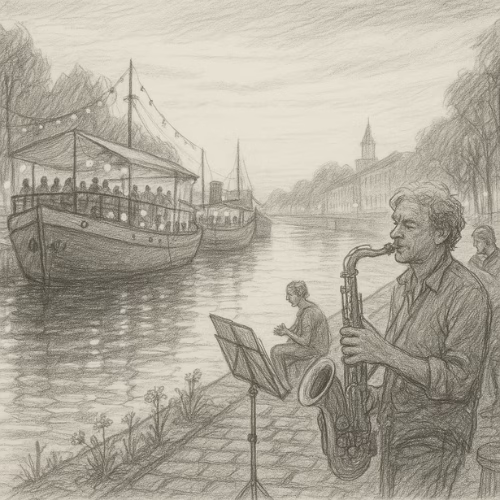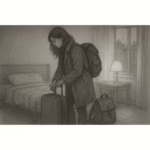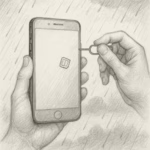I took a cruise back to Finland the next day, stepping off quietly at the harbor in Turku. The city met me like an old painting—odd, subdued, full of antique angles and forgotten stones. It felt more like a village than a capital. And yet, this was once the heart of the country, Finland’s very first capital, and somehow it still carried that dignity in its bones.
I walked along the river. On both sides, boat-restaurants lined the shore like floating taverns—some converted barges, others sleek, some rusted with history. People were sitting on the decks with sunglasses and pints of beer, laughing in a way that felt loose, easy. The air was full of the sound of glasses clinking, the low hum of conversations in Finnish, Swedish, English… even fragments of Arabic, which floated past like mist.
Beer cans were everywhere. Some are thrown beside trash bins. Others are still rolling along the cobblestones. But among them, I noticed something else—figures quietly moving through the noise, collecting those cans into large transparent bags. I remembered what a friend once told me, how hard her first years in Finland were. After restaurant shifts, she would walk home picking up cans, sometimes collecting enough to make 60 euros a week. In summer, some earned over 200. A strange sort of seasonal job, built on the waste of laughter.
And then I heard it.
The sound of a saxophone rising from one of the boats.
I followed it like a scent.
The music was deep, slow, rich like honey poured in darkness. It reached me before I saw the boat, and when I did, I knew I would stay until the last note. A small band played at the bow, half hidden behind potted plants and string lights. They weren’t famous, not flawless—but they played with soul. Especially the one on sax. Every note curved through the evening air and touched something old in me.
I’ve loved the saxophone since I was young.
But I never dared to play.
In my country, it wasn’t something girls picked up. It was loud, bold, masculine. It belonged to smoky clubs and confident hands. When I was still a student, just beginning life abroad, the idea of learning felt so far away. Money was tight. Instruments were heavy. And my luggage, like my life, had to stay light. So I folded the dream into a drawer of “maybe someday” and moved on.
But that night, in Turku, watching the saxophonist play under the slowly setting sun, something stirred.
No regret.
Just a quiet ache.
The sun dipped lower. The boat swayed gently in place. Yellow wildflowers grew between the cracks in the quay, blooming stubbornly beside rusted iron bolts. I could smell the river. I could feel the end of summer in the air—warm enough to breathe deeply, cool enough to carry memories.
I didn’t want to leave, but the music ended, as all things do. People clapped. Some went back to drinking. Others disappeared down the riverside paths. I lingered a moment longer, then walked on.
That night, back in my bed, I still heard the saxophone in my mind. Not as sound, but as a question.
When will you stop putting yourself aside?
And I had no answer.
Only silence.
But even that—
was beautiful.



